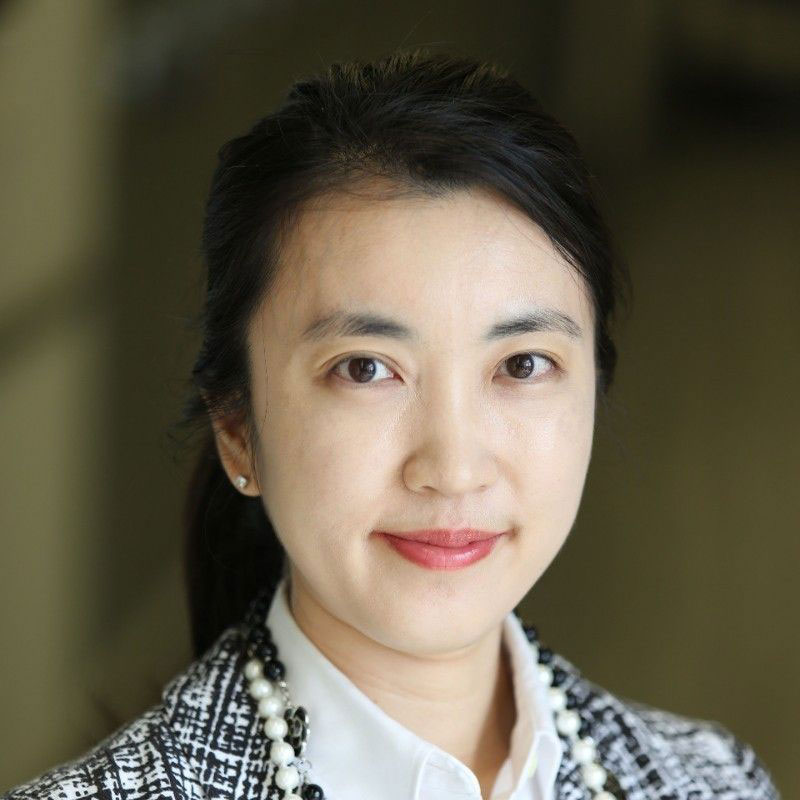Julia TCW
Julia TCW earned the Toffler Scholar Award in 2022 at Boston University
Biography
Julia TCW was born in South Korea but spent her early childhood in Rockville, Maryland. Dr. TCW’s early interest in science and biology was inspired by her grandfather, who helped raise her. A microbiologist and visiting professor at Duke University, her grandfather always encouraged Dr. TCW’s interest in math and science. Although she was especially good at math, Dr. TCW became increasingly curious about science in middle school. She decided to enter a science competition and, after winning the award, realized she loved the challenges that science offered her.
To her, math was appealing because it was formulaic. It followed a strict set of rules that always produced a known or expected outcome. Science was much less rigid but offered higher diversity. Dr. TCW knew that, if she chose to pursue it, she would never be bored. Ultimately, Dr. TCW’s first place win in the competition did more than cement her interest in the field. It earned her acceptance into a prestigious science high school that admitted less than .5% of students in the nation. Through her studies there, she discovered that, of all the sciences, biology interested her the most. New findings were always emerging, offering her a landscape of ever-evolving challenges. This, she decided, was the field she wanted to pursue.
Following graduation, Dr. Julia TCW returned to the United States to finish college and graduate school. She received her AM and PhD in Molecular and Cellular Biology from Harvard University. Her research induced pluripotent stem cell (iPSC) reprogramming in the university's Department of Stem Cell and Regenerative Biology.

She then pursued her postdoctoral research and was further promoted to faculty in the Department of Neuroscience, Ronald M. Loeb Center for Alzheimer’s Disease, Department of Genetics and Genomic Sciences at Icahn School of Medicine at Mount Sinai, New York. She continued researching iPSCs, focusing on the development of iPSC models and delving deeper into the genetics of Alzheimer’s disease.
Today, Dr. Julia TCW is an Assistant Professor in the Department of Pharmacology & Experimental Therapeutics and the Director of the Laboratory of Human Induced Pluripotent Stem Cell Therapeutics at Boston University. Her research is focused on a specific variation of the gene apolipoprotein E (APOE) that is a major genetic risk factor for Alzheimer’s disease.
“In public, most people know what a doctor does, but many people do not know about medical research. But researchers help the doctors by defining symptoms and diseases so they can be treated. It’s very important work, even though it may not be as visible.”
– Dr. Julia TCW

Biography
Julia TCW was born in South Korea but spent her early childhood in Rockville, Maryland. Dr. TCW’s early interest in science and biology was inspired by her grandfather, who helped raise her. A microbiologist and visiting professor at Duke University, her grandfather always encouraged Dr. TCW’s interest in math and science. Although she was especially good at math, Dr. TCW became increasingly curious about science in middle school. She decided to enter a science competition and, after winning the award, realized she loved the challenges that science offered her.
To her, math was appealing because it was formulaic. It followed a strict set of rules that always produced a known or expected outcome. Science was much less rigid but offered higher diversity. Dr. TCW knew that, if she chose to pursue it, she would never be bored. Ultimately, Dr. TCW’s first place win in the competition did more than cement her interest in the field. It earned her acceptance into a prestigious science high school that admitted less than .5% of students in the nation. Through her studies there, she discovered that, of all the sciences, biology interested her the most. New findings were always emerging, offering her a landscape of ever-evolving challenges. This, she decided, was the field she wanted to pursue.
Following graduation, Dr. Julia TCW returned to the United States to finish college and graduate school. She received her AM and PhD in Molecular and Cellular Biology from Harvard University. Her research induced pluripotent stem cell (iPSC) reprogramming in the university's Department of Stem Cell and Regenerative Biology.
She then pursued her postdoctoral research and was further promoted to faculty in the Department of Neuroscience, Ronald M. Loeb Center for Alzheimer’s Disease, Department of Genetics and Genomic Sciences at Icahn School of Medicine at Mount Sinai, New York. She continued researching iPSCs, focusing on the development of iPSC models and delving deeper into the genetics of Alzheimer’s disease.
Today, Dr. Julia TCW is an Assistant Professor in the Department of Pharmacology & Experimental Therapeutics and the Director of the Laboratory of Human Induced Pluripotent Stem Cell Therapeutics at Boston University. Her research is focused on a specific variation of the gene apolipoprotein E (APOE) that is a major genetic risk factor for Alzheimer’s disease.
“In public, most people know what a doctor does, but many people do not know about medical research. But researchers help the doctors by defining symptoms and diseases so they can be treated. It’s very important work, even though it may not be as visible.”
– Dr. Julia TCW

Research Focus
Challenges
Around the world, an estimated 50 million people have been diagnosed with dementia. Alzheimer’s disease is the most common cause. As the world’s population ages, the numbers are projected to rise substantially. Despite many promising avenues of research, there is still much we do not understand about the disease, and current medications for treatment are limited.

Focus and Priorities
Dr. TCW is interested in developing an even more detailed understanding of Alzheimer’s disease at the neuromolecular level. Her research just published in the journal Cell is focused on the gene apolipoprotein E4 (APOE4), which is one of three common variants (called alleles) of genes that provide the instructions for making the protein apolipoprotein E. While research is still being conducted on the exact relationship between APOE4 and Alzheimer’s disease, APOE4 is associated with an increase in amyloid plaques, which is tied to the death of neurons and, thus, may lead to or contribute to Alzheimer’s disease. Better understanding this allele is a promising research direction into Alzheimer’s Disease.
Her research will use brain cells developed from human induced pluripotent stem cells (iPSCs) to
achieve two goals: (1) learn more about the way Alzheimer’s disease develops and progresses and (2) develop model systems of the human brain that can be used for drug screens.
To achieve the first goal, Dr. TCW is using a bioinformatics approach to discover pathways and network defects of the genetic risks associated with Alzheimer’s disease. Her lab is also working to uncover the mechanisms behind Alzheimer’s risk factors, including lipid metabolism and inflammation. Dr. TCW’s lab is accomplishing the second goal by developing many new processes to help other researchers generate and work with central nervous system (CNS) cells, including astrocytes and microglia.

Benefits
Through this research, Dr. TCW hopes to better understand the specific mechanisms behind the progression of Alzheimer’s disease and how future drugs might target the disease. She also hopes that eventually, she might be able to use gene editing technology like CRISPR to remove mutations in certain cells, which could provide treatment for Alzheimer’s. If her research proves to be promising, she is hoping she will be one step closer to animal trials.
Karen Toffler Charitable Trust Investment
Support from the Karen Toffler Charitable Trust will help Dr. Julia TCW pursue a specific line of research that involves Apolipoprotein E4 (APOE4) and gene editing. The research needed to pursue this line of inquiry is at a very early stage, and she hasn’t been able to get funding to pursue it from more traditional sources. The funding that comes from the Toffler Scholar Program will allow her to pursue this promising line of research.
“I did not expect to get funding for this idea—it is a very different line of inquiry, more futuristic. It’s difficult to get funding without proving that a certain way is the right direction for your research. Sometimes, it requires multiple years of experiments to get NIH funding. Funding from the Toffler Trust helps bridge that gap so that this promising idea can move forward.”
– Dr. Julia TCW